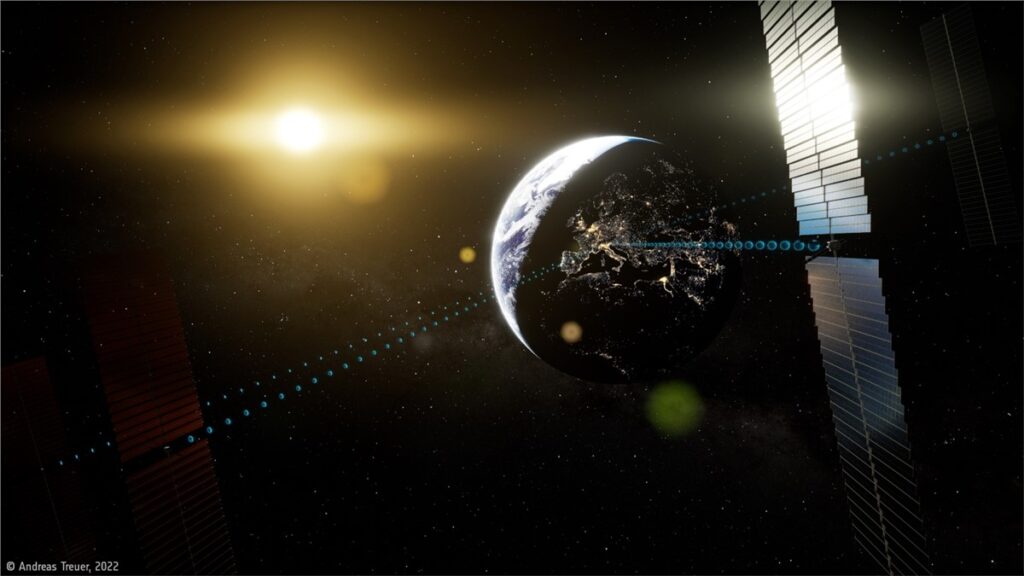Thales Alenia Space, a joint company between Thales and Leonardo, has been selected by the European Space Agency (ESA) to conduct a feasibility study for the SOLARIS initiative. This project aims to determine the viability of using spaceborne solar power plants to provide clean energy to meet Earth’s energy requirements.
With Europe targeting net zero emissions by 2050, the need for renewable and affordable energy sources is crucial. Space-based solar energy has emerged as a promising solution to meet these needs. Thales Alenia Space is leading a consortium to develop an ambitious solution for Europe – harvesting solar energy in orbit and transmitting it back to Earth. This approach eliminates concerns about weather conditions and nighttime limitations.

The SOLARIS studies, expected to be completed by 2025, will enable Europe to make an informed decision on whether to proceed with the commercialization of space-based solar energy. The initial objective is to design a small-scale in-orbit demonstrator.
SOLARIS received support at ESA’s Ministerial Council in November 2022, with the goal of positioning Europe as a key player in developing clean and sustainable energy solutions. Thales Alenia Space will lead the feasibility study, focusing on developing new concepts for a system that provides solar energy from space. This includes high-efficiency space solar panels, wireless power transmission, and robotized assembly in orbit.
The concept of space solar power complements renewable energy sources on Earth by providing continuous electrical supply without the need for significant storage systems. The European consortium involved in these studies brings together expertise in orbital systems, aviation, strategic consulting, and energy, highlighting the project’s potential for the global energy industry.


 Copyright 2023 All rights reserved.
Copyright 2023 All rights reserved.